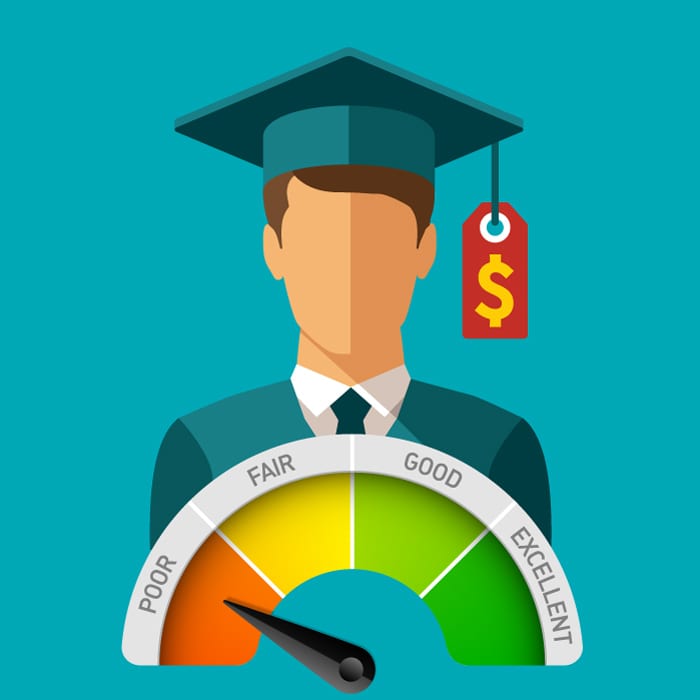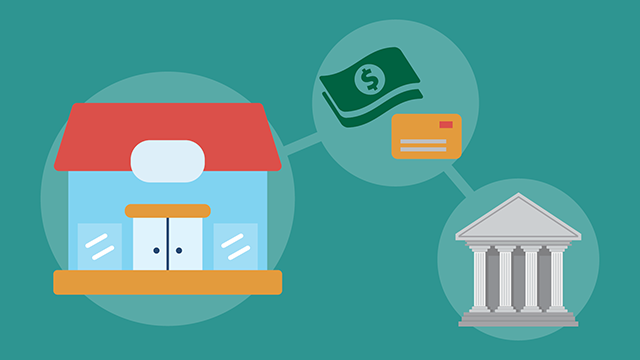A Comprehensive Overview to Home Loans: Services and Options Explained
Charting the globe of home car loans can be complicated. Different options exist, each with distinct functions and ramifications for possible home owners. Comprehending the distinctions in between standard and government-backed lendings is essential. Moreover, the application procedure entails careful paperwork and pre-approval actions that lots of forget. As consumers commence on their home-buying journey, recognizing just how to manage these obligations efficiently might imply the distinction between financial security and difficulty. What approaches can encourage them on this course?
Recognizing Home Loans: Kinds and Terms
Understanding the numerous sorts of mortgage and their linked terms is essential for prospective homeowners, as it furnishes them with the knowledge needed to make informed monetary choices. Mortgage can be broadly categorized into fixed-rate and adjustable-rate mortgages. Fixed-rate home mortgages preserve a constant rate of interest over the life of the lending, providing security in regular monthly payments. Payday Loans. Alternatively, adjustable-rate mortgages feature interest prices that might vary after an initial set period, possibly leading to lower first settlements but raised future expenses
Added terminology is necessary for clearness. Principal describes the car loan amount borrowed, while rate of interest is the price of borrowing that amount. The regard to the financing shows its period, normally ranging from 15 to 30 years. Understanding these essential concepts allows prospective purchasers to browse the complicated landscape of home funding, guaranteeing they select the right financing alternative that straightens with their monetary situation and lasting goals.
Standard Car Loans vs. Government-Backed Loans
A substantial difference in home funding exists between government-backed finances and conventional lendings, each accommodating various borrower demands and circumstances. Traditional fundings are not guaranteed or guaranteed by the government and typically need higher credit rating and down repayments. They are often attracting debtors with stable financial backgrounds, as they might provide affordable rate of interest and terms.
On the other hand, government-backed fundings, such as FHA, VA, and USDA fundings, are developed to aid details groups of borrowers, consisting of new property buyers and experts. Fast Cash. These financings normally include lower deposit demands and even more flexible credit rating standards, making them easily accessible to a wider variety of individuals
Inevitably, the choice between government-backed and traditional loans pivots on the debtor's financial scenario, long-term goals, and qualification, making it crucial to thoroughly evaluate both alternatives before making a choice.

The Function of Rates Of Interest in Home Financing
Rates of interest play a crucial function in home financing, affecting borrowers' choices between variable and set price car loans. The choice in between these options can significantly affect regular monthly settlements, influencing general price. Comprehending exactly how rate of interest prices work is important for anybody navigating through the home mortgage process.
Dealt With vs. Variable Rates
Buyers face an important choice when choosing between repaired and variable rates, as this option greatly impacts the cost of financing gradually. Fixed-rate home loans provide security, securing a rates of interest for the life of the funding, which can be helpful in an increasing rate of interest setting. This predictability enables house owners to budget plan more successfully. Alternatively, variable-rate home loans, or variable-rate mortgages (ARMs), usually begin with reduced first prices that can fluctuate based upon market conditions. While this may bring about lower first settlements, borrowers face the risk of enhanced prices in the future. Inevitably, the selection in between fixed and variable prices depends on individual economic circumstances, risk tolerance, and assumptions concerning future rate of interest trends.
Influence On Regular Monthly Settlements
When reviewing home funding options, the impact of rate of interest on regular monthly settlements is a vital factor to contemplate. Rate of interest directly influence the overall cost of borrowing, impacting just how much a consumer will certainly pay every month. A reduced interest rate cause smaller monthly repayments, making homeownership more economical. On the other hand, greater prices can considerably boost month-to-month commitments, possibly straining a property owner's spending plan. Additionally, the lending term plays an essential function; longer terms may spread out repayments out but can cause paying more rate of interest over time. Recognizing just how rate of interest rates communicate with lending amounts and terms is vital for debtors to make enlightened monetary choices and select a home loan that aligns with their long-lasting economic goals.
Home Mortgage Brokers vs. Direct Lenders: Which Is Right for You?
When taking into consideration a mortgage, possible consumers must comprehend the distinct functions and obligations of home loan brokers and straight lending institutions. Each option presents its own benefits and downsides, which can considerably affect the total price of funding. An informed selection requires cautious analysis of these elements to figure out the most effective fit for private needs.
Duties and Obligations Defined
Steering the complexities of home financing requires a clear understanding of the duties and duties of home loan brokers and direct lenders. Home loan brokers serve as intermediaries, attaching consumers with lending institutions. They assess a borrower's financial situation, curate funding choices, and overview clients through the application procedure, typically leveraging multiple loan provider relationships to protect favorable terms. On the other hand, direct loan providers, such as banks and cooperative credit union, give fundings straight to debtors. They take care of the whole funding procedure, from application to funding, with a focus on their very own products. Each choice provides distinctive methods for getting financing, making it crucial for debtors to assess their requirements and preferences when making a decision between involving a home mortgage broker or dealing with a straight lending institution.
Pros and Cons Contrast
Selecting between a mortgage broker and a direct lending institution can greatly affect the home financing experience, as each option uses special advantages and drawbacks. Home mortgage brokers act as middlemans, giving access to several lending institutions and possibly much better prices, while streamlining the finance process. They may charge costs and count on commission structures that might affect their recommendations. On the various other hand, you can look here straight lenders enhance the procedure by providing in-house loans, which can result in faster approvals and fewer complications. On the other hand, they may have a minimal option of products and less flexibility regarding rates. Eventually, the decision pivots on private choices, financial situations, and the preferred degree of support throughout the home loan journey.
Price Implications Evaluated
While examining the expense ramifications of home mortgage brokers versus direct lenders, prospective home owners need to consider numerous variables that can considerably impact their overall expenditures. Mortgage brokers usually charge fees for their services, which can vary considerably, affecting the general car loan cost. Nonetheless, they frequently have accessibility to a wider range of funding products and affordable rates, potentially conserving customers money in the long run. On the other hand, direct lenders might use a much more straightforward procedure with possibly reduced in advance prices, however their lending options might be restricted. It is crucial for property owners to contrast rate of interest, charges, and terms from both brokers and lenders, ensuring they make an educated decision that aligns with their financial objectives and needs.
The Mortgage Application Process: What to Anticipate

The mortgage application procedure can commonly really feel daunting for numerous applicants. It usually begins with collecting necessary documentation, consisting of proof of earnings, credit report, and personal identification. Lenders use this info to analyze the applicant's economic security and establish financing qualification.
Next off, candidates submit a formal application, which may involve filling in online kinds or supplying details face to face. Throughout this phase, lenders evaluate various variables, such as debt-to-income proportion and credit report, to pick funding terms.
Once pre-approved, the lending institution will certainly perform a thorough evaluation of the residential or commercial property to determine its worth straightens with the loan amount. This stage may also consist of extra history checks.

After final authorizations and problems are fulfilled, the lending is processed, leading to the closing stage. Recognizing each step encourages applicants, making the journey smoother and a lot more manageable as they approach homeownership.
Tips for Managing Your Home Mortgage Responsibly
Successfully navigating the mortgage application process is just the start of an accountable financial trip. Taking care of a mortgage calls for attention to several crucial practices. First, customers must develop a clear budget that accommodates monthly home loan settlements, residential property tax obligations, and insurance policy. On a regular basis assessing this budget aids prevent overspending and assurances prompt settlements.
Furthermore, making added payments when feasible can significantly reduce the loan principal and complete rate of interest paid in time. Borrowers need to likewise maintain open lines of communication with their loan provider, specifically in times of economic trouble. This can cause prospective remedies such as lending alterations or re-financing options.
It is a good idea to monitor credit ratings frequently. A great credit rating can offer chances for better car loan terms in the future. Cash Loans. By complying with these suggestions, home owners can browse their financing responsibilities successfully, guaranteeing long-term monetary health and stability
Regularly Asked Concerns
What Are Closing Prices and Just How Are They Determined?
Closing expenses incorporate costs connected with settling a home mortgage, consisting of assessment, title insurance coverage, and lending source fees. These expenses typically vary from 2% to 5% of the car loan amount, varying based on place and loan provider.
Can I Certify for a Home Mortgage With Bad Credit History?
Yes, people with poor credit can qualify for a home finance, though choices may be limited. Lenders typically require higher deposits or rates of interest, and checking out government-backed finances may improve possibilities of authorization.
What Is Mortgage Insurance and When Is It Required?
Home loan insurance safeguards lending institutions versus default and is commonly called for when a customer makes a down repayment of less than 20%. It assures that loan providers recover losses if the debtor stops working to settle the financing.
Exactly How Does Refinancing Job and When Should I Consider It?
Refinancing involves replacing a current home mortgage with a brand-new one, typically to secure a lower interest rate or change loan terms. Property owners ought to think about refinancing when passion prices drop significantly or their financial situation boosts.
What Occurs if I Miss a Mortgage Settlement?
If a home mortgage payment is missed out on, the lender generally assesses late costs, reports the misbehavior to credit rating bureaus, and may initiate repossession proceedings if repayments remain to be ignored, eventually threatening the home owner's residential or commercial property.
Fixed-rate home loans maintain a consistent rate of interest price over the life of the financing, providing security in monthly settlements. A substantial difference in home financing exists between anonymous standard lendings and government-backed lendings, each catering to different customer demands and conditions. In contrast, government-backed lendings, such as FHA, VA, and USDA fundings, are made to help certain groups of consumers, including novice buyers and veterans. Passion rates play an important function in home funding, influencing borrowers' decisions between set and variable rate finances. Fixed-rate mortgages supply security, securing in a passion price for the life of the finance, which can be see here helpful in a climbing rate of interest rate setting.